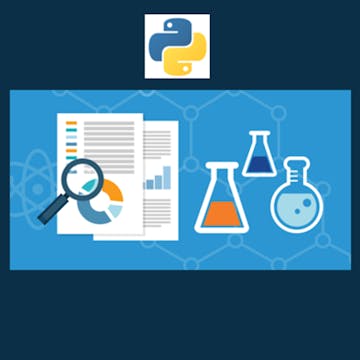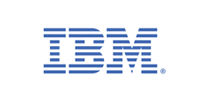
Este curso de proyecto final le dará una idea de lo que atraviesan los científicos de datos en la vida real cuando trabajan con datos.
Aprenderá sobre datos de ubicación y diferentes proveedores de datos de ubicación, como Foursquare. Aprenderá cómo realizar llamadas de API RESTful a la API de Foursquare para recuperar datos sobre lugares en diferentes vecindarios de todo el mundo. También aprenderá a ser creativo en situaciones en las que los datos no están disponibles fácilmente al extraer datos web y analizar el código HTML. Utilizará Python y su biblioteca de pandas para manipular datos, lo que lo ayudará a refinar sus...
Read more
Good to know
Save this course
Reviews summary
Hands-on capstone course in data science
Activities
Review spatial data basics
Show steps
Review the basics of spatial data to ensure a strong foundation for the course.
Browse courses on
Location Data
Show steps
-
Read through introductory materials on spatial data concepts and terminology.
-
Complete online tutorials or exercises on spatial data basics.
-
Review examples of spatial data and their applications.
Follow Foursquare API tutorials
Show steps
Gain hands-on experience with the Foursquare API to prepare for the course.
Browse courses on
Foursquare API
Show steps
-
Find and follow online tutorials or documentation on using the Foursquare API.
-
Complete practice exercises or projects that involve making API calls to Foursquare.
Practice data manipulation with Pandas
Show steps
Strengthen your data manipulation skills with Pandas to enhance your ability to work with data in the course.
Browse courses on
Pandas
Show steps
-
Complete coding exercises or challenges that involve data manipulation using Pandas.
-
Work on personal projects or datasets that require data manipulation with Pandas.
Four other activities
Expand to see all activities and additional details
Show all seven activities
Mentor junior data scientists or students
Show steps
Reinforce your knowledge and skills by mentoring others in geospatial data analysis.
Browse courses on
Mentoring
Show steps
-
Volunteer or connect with organizations that provide mentoring opportunities in data science.
-
Provide guidance and support to junior data scientists or students on geospatial analysis techniques and projects.
Create interactive maps with Folium
Show steps
Develop your ability to create interactive maps and visualizations using Folium, which will be highly relevant to the course.
Browse courses on
Folium
Show steps
-
Explore the Folium library and its features.
-
Create practice maps or visualizations using Folium.
-
Work on a project that involves creating interactive maps with Folium.
Write a blog post on geospatial analysis techniques
Show steps
Deepen your understanding of geospatial analysis techniques and enhance your communication skills by writing a blog post.
Browse courses on
Geospatial Analysis
Show steps
-
Research and learn about geospatial analysis techniques.
-
Write a blog post that explains a specific geospatial analysis technique or application.
Contribute to open-source geospatial projects
Show steps
Gain practical experience in geospatial data analysis and contribute to the open-source community.
Browse courses on
Open Source
Show steps
-
Identify open-source geospatial projects that align with your interests.
-
Find ways to contribute to these projects, such as bug reporting, documentation writing, or code contributions.
Review spatial data basics
Show steps
Review the basics of spatial data to ensure a strong foundation for the course.
Browse courses on
Location Data
Show steps
- Read through introductory materials on spatial data concepts and terminology.
- Complete online tutorials or exercises on spatial data basics.
- Review examples of spatial data and their applications.
Follow Foursquare API tutorials
Show steps
Gain hands-on experience with the Foursquare API to prepare for the course.
Browse courses on
Foursquare API
Show steps
- Find and follow online tutorials or documentation on using the Foursquare API.
- Complete practice exercises or projects that involve making API calls to Foursquare.
Practice data manipulation with Pandas
Show steps
Strengthen your data manipulation skills with Pandas to enhance your ability to work with data in the course.
Browse courses on
Pandas
Show steps
- Complete coding exercises or challenges that involve data manipulation using Pandas.
- Work on personal projects or datasets that require data manipulation with Pandas.
Mentor junior data scientists or students
Show steps
Reinforce your knowledge and skills by mentoring others in geospatial data analysis.
Browse courses on
Mentoring
Show steps
- Volunteer or connect with organizations that provide mentoring opportunities in data science.
- Provide guidance and support to junior data scientists or students on geospatial analysis techniques and projects.
Create interactive maps with Folium
Show steps
Develop your ability to create interactive maps and visualizations using Folium, which will be highly relevant to the course.
Browse courses on
Folium
Show steps
- Explore the Folium library and its features.
- Create practice maps or visualizations using Folium.
- Work on a project that involves creating interactive maps with Folium.
Write a blog post on geospatial analysis techniques
Show steps
Deepen your understanding of geospatial analysis techniques and enhance your communication skills by writing a blog post.
Browse courses on
Geospatial Analysis
Show steps
- Research and learn about geospatial analysis techniques.
- Write a blog post that explains a specific geospatial analysis technique or application.
Contribute to open-source geospatial projects
Show steps
Gain practical experience in geospatial data analysis and contribute to the open-source community.
Browse courses on
Open Source
Show steps
- Identify open-source geospatial projects that align with your interests.
- Find ways to contribute to these projects, such as bug reporting, documentation writing, or code contributions.
Career center
Data Scientist
Quantitative Analyst
Business Analyst
Market Researcher
Data Analyst
Data Engineer
Epidemiologist
UX Researcher
Researcher
Data Journalist
Statistician
Software Engineer
Financial Analyst
Product Manager
Consultant
Reading list
Share
Similar courses
OpenCourser helps millions of learners each year. People visit us to learn workspace skills, ace their exams, and nurture their curiosity.
Our extensive catalog contains over 50,000 courses and twice as many books. Browse by search, by topic, or even by career interests. We'll match you to the right resources quickly.
Find this site helpful? Tell a friend about us.
We're supported by our community of learners. When you purchase or subscribe to courses and programs or purchase books, we may earn a commission from our partners.
Your purchases help us maintain our catalog and keep our servers humming without ads.
Thank you for supporting OpenCourser.



